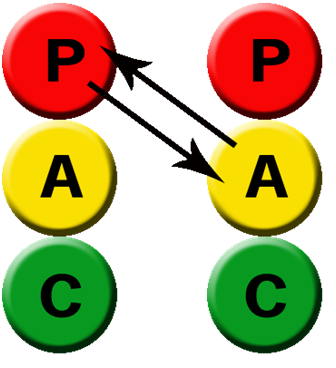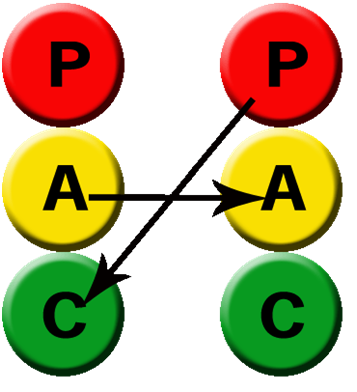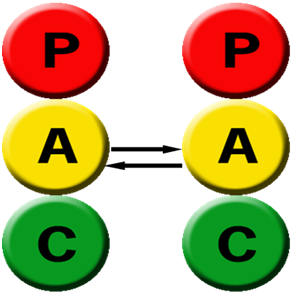Sales professionalism 14
By: Dr. M. Shehab
All rights reserved to the writer
Adaptive Selling
Now we will discuss how sales person or medical rep can sell to each style; Analytical, Driver, Amiable, Expressive.
Analytical has some strength he is Industrious, persistent, serious, exacting, and orderly. He has also some Weaknesses he is critical, indecisive, stuffy, picky, and moralistic. Analytical know their business well, to sell to him you must:
- Go in with facts and evidence to back them up. Scientific or survey approach can be used.
- Use a logic-based, low-key style of presenting.
- Emphasize tested, proven, well-documented features of your product.
- Use charts, graphs, written documents. Always use visual aid.
- 5. Point out the pros and cons of your product. (Detailed presentation, Long Call).
- 6. Be sure to provide a detailed summary of major points at the close.(Summary close)
- Avoid giving your opinion; they care about facts.
Driver has some Strength he is strong-willed, independent, practical, decisive, efficient. He has some Weaknesses he is pushy, severe, tough, dominating and harsh. With driver don’t worry about trying to develop personal relationships he doesn’t care. To sell to him you must:
- 1. Be brief and to the bottom line. Short call use unique product benefit approach.
- Move fast and use related benefits that can be verified by Concrete evidence (short presentation, short call). The fewer visual aids you use, the better.
- Ask questions to allow them to talk and lead. Question approach can be used also. He will test you to see what you are made of.
- If you challenge them, challenge the concept not the person. Never try to bluff.
- Present several alternatives from which they may choose their own solution; don’t tell them what is best. (either or close)
Amiable has some strength he is supportive, respectful, willing, dependable, and agreeable. He has also some weaknesses; he is conforming, unsure, pliable, dependent, and awkward. With amiable you must convince him that you are authentic and have their best interest at heart. To sell to him you must:
- Spend some time relating / developing personal relationship
- Plan to approach with as much personal information as possible (introductory approach )
- Avoid rigid or canned approaches. (Detailed presentation ,Long call)
- Use empathy to show that you understand their feelings.
- Be open and candid; use first names. Use direct close.
- Offer personal assurances and be prepared to provide references and case histories.
Expressive has some strengths he is enthusiastic, ambitious, stimulating, dramatic, and friendly. He has also some weaknesses he is manipulative, undisciplined, excitable and reacting. Expressive is showy so play on his tendency to be visionaries and dreamer. To sell to him you must:
- Using flattering approach to praise him about his insight
- Plan to show them how they can personally win in addition to the company benefit (incentive close).
- Ask open-ended questions that allow them to talk about “their plans for growth. Use some showmanship.( short presentation, short call)
- Use testimonials, especially from well-known people. (Referral approach)
- Never argue or back them into a corner.
- Convey respect for their intelligence/foresight.
Transactional communication “TA”
A method to improve communication
According to TA, all forms of communication are transactions. Transactional Analysis suggests that communication requires a contract or agreement between the communicators.
This contract includes: Why they want to do something, with whom, what they are going to do, when, any fees, payment or exchanges there will be. For the communication transaction to be successful, it needs to be:
ü Congruent…everyone has the same expectations
ü Positive… stated in terms of what is wanted, not wanted.
ü Detailed… these will depend on the nature of the contract
ü Manageable… parties need to be competent and able to do what is asked.
Transactional analysis says that the way we relate to each other is the result of three ego states. Ego states Categorise the way we think, feel and behave. Our ego states change according to the situation. E.g. a parent in a supermarket may frown and speak angrily to a child who is touching the sweets at the checkout, and at the same.
Everyone has three ego states:
According to Transactional Analysis, there are two types of communication transactions that can occur, based on these ego states:
ü Complementary Transactions When the lines are parallel the communication can continue indefinitely.
|
ü Parent-Parent ü Adult-Adult ü Child-Child ü Child-Parent ü Parent-Child ü Child-Adult ü Adult-Child ü Adult-Parent ü Parent-Adult. |
 |
- Crossed Transactions when these occur communication stops
|
 |
Adult-Adult transaction is the most desirable one because it encourages problem solving, treats people as reasonable equals and Improves understanding. This can be used by sales person or medical rep when customer tries to manipulate or bluff him.
I will be happy with your comments:




